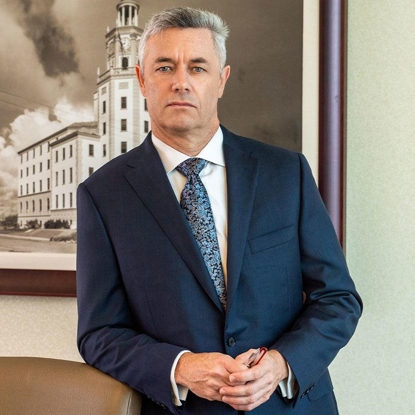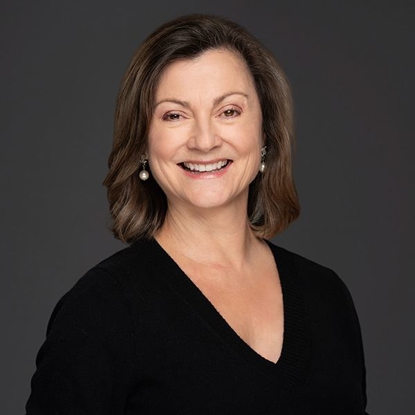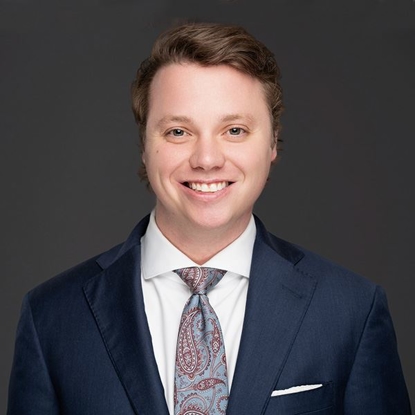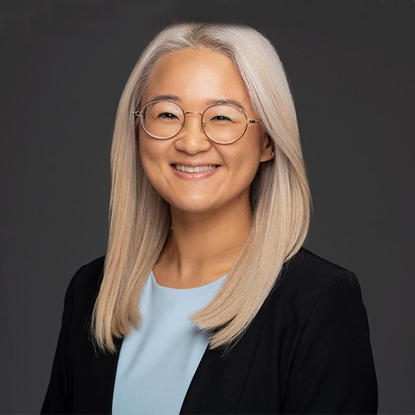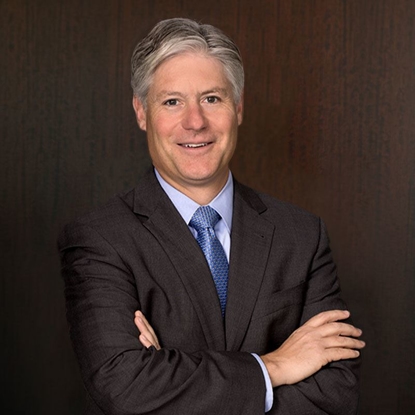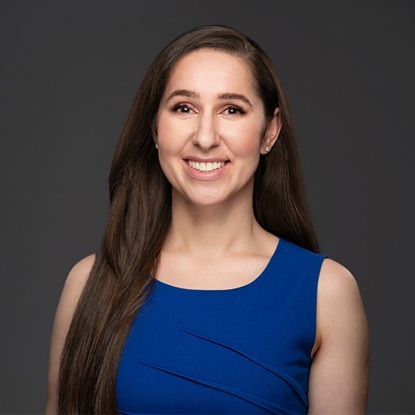In his order adjudicating the will in question to have been procured by undue influence, the County Judge made the following findings of fact and conclusions of law:
‘1. That that certain purported will of Coketine Bray Carpenter, the above decedent, was signed by the said decedent at the end thereof in the presence of two attesting witness who were present at the same time the testatrix signed the said will;
‘3. That the decedent was a widow and the mother of a grown daughter, Mary, and three grown sons, Ben, Sam, and Bill; that of all her said children the decedent was most fond of Ben; that Ben substantially assisted the decedent, both financially and otherwise, more than her other children; that on many occasions the decedent expressed a considered intention to leave her estate equally to her four children; that there was no evidence that subsequent to such expressions of intent any event transpired which under normal circumstances would have influenced the decedent to depart from her said intention; that there was no evidence that the decedent had ever had a will other than the said purported will; that in the absence of a will the decedent’s estate would, by the law of intestacy, have been divided equally among her four children, which fact the decedent is presumed to have known;
‘4. That a confidential relationship existed between Mary and the decedent;
‘5. That Mary was active in procuring the execution of the said purported will; that Mary made all the arrangements for the preparation and execution of the said purported will; that Mary kept the execution of the said purported will by the decedent secret from the sons of the decedent, Ben and Bill; that the decedent’s doctor was not consulted regarding the decedents ability to execute a will and was not informed of the said purported will until after the death of the decedent;
‘7. That at the time the said purported will was executed on September 1, 1966, for quite some time prior thereto and until her death thereafter, the decedent was very sick physically, depressed, and mentally impaired; that for quite some time prior to the execution of the said purported will the decedent drank alcohol daily, frequently to excess, and often as much as one-fifth gallon of whiskey per day; that the ultimate cause of the decedent’s death was the breakdown of her body due to excessive consumption of alcohol; that the decedent’s condition was so poor at the time the said purported will was executed that three days prior thereto her physician had concluded she was a terminal case and that four days after the said execution she expired; that the day before the execution of the said purported will the decedent informed an examining physician that she had been depressed for a longs period of time; that from prior to the time Mary testified the decedent instructed her to have the said purported will prepared, to-wit: on August 29, 1966, through her death, the decedent was from time to time being given barbiturates, which drugs impair the mind of a normal person and impair the mind of a sick person even more; that at the time the said purported will was executed, the decedent stated that she was leaving her sons out of her estate because they did not love her; that there was no evidence that the decedent’s sons did not love her nor was there any evidence which would lead an unimpaired mind to believe that they did not love her;
‘8. That a presumption has been raised that the said execution of the purported will was procured through undue influence;
‘9. That the proponent of the said purported will, Mary Carpenter, has not overcome the presumption nor disproved the existence of undue influence in the execution of the said purported will;
‘10. That the execution of the said purported will was procured by Mary Carpenter, the proponent thereof, by undue influence;
Mary, the proponent, appealed. The District Court of Appeal restated the facts in its opinion, emphasizing certain testimony not included in the findings of the trial judge, as follows:
‘At the time of her death in 1966, Mrs. Carpenter was 52 years of age. Her husband had died in 1953 so that when her four children thereafter became grown and moved away, the decedent was left to live alone in the family home in Winter Garden, Florida. During the several years that she did live alone she handled all of her own business and household affairs. In the summer of 1966, Mrs. Carpenter developed cirrhosis of the liver to such an extent that she became quite ill and required hospitalization by her physician on August 28.
‘Mary, oldest of the four children, was employed as a school teacher in Daytona Beach. In the summer of 1966 she attended a ten-week school session at the University of Georgia, at the completion of which she visited her mother on August 20, 1966. Mary immediately recognized that her mother was quite ill, and when she again visited her mother one week later and saw that there was no improvement, Mary arranged for her mother to be admitted to a hospital in Daytona Beach on August 28. Mrs. Carpenter had no telephone in her room, nor was one readily accessible to her. On August 30, Mary telephoned her own attorney in Orlando, Russell Troutman, Esquire, advising him that her mother wished to have a will prepared in which Mary was to be named as sole beneficiary and executrix. The following day Mary again telephoned the attorney to impress upon him the urgency of the matter.
‘Following the second telephone call Mr. Troutman promptly prepared a will in accordance with these instructions and drove from Orlando to Daytona Beach with the document. When he arrived at the hospital, the testatrix recognized him and out of the presence of Mary, Mr. Troutman questioned the testatrix in detail concerning her wishes for disposition of her property, particularly to satisfy himself that she was aware that under the testamentary scheme as relayed to him, Mrs. Carpenter’s three sons were being excluded from her will. After this preliminary questioning of the testatrix Mr. Troutman then arranged for two other persons to be present (one of whom was a medical doctor) during the time that Mr. Troutman read the will to the testatrix and again questioned her to satisfy himself and the witnesses that Mrs. Carpenter was aware of the contents of the document and that it was in accord with her desires. The will was then properly executed and retained by Mr. Troutman, none of the children other than Mary being aware of the will’s existence until at or just shortly prior to Mrs. Carpenter’s death four days later.’
The conclusions of the District Court were: (1) that there was sufficient credible evidence to rebut the presumption of undue influence raised by the county judge’s finding that Mary had a confidential relationship with her mother and that she actively procured the will; and (2) that without the presumption, the evidence before the county judge was insufficient as a matter of law to support a finding of undue influence. The order of the county judge was therefore reversed, and the will reinstated.
We are concerned with four interrelated issues in this case: (1) whether there was sufficient evidence before the county judge to raise a presumption of undue influence; (2) if so, whether the burden of proof, or merely the burden of going forward with the evidence, then shifted to the proponent to prove her case; (3) whether the presumption was rebutted (this issue also involves a consideration of the strength of the showing which must be made to rebut the presumption and whether the county judge or the District Court is empowered to decide this); and finally, (4) whether the evidence before the county judge, aside from the presumption, was insufficient as a matter of law, to permit him to conclude a matter of law, to permit him to conclude these issues in order.
[1] Preliminarily, we note that Fla.Stat. Sect. 732.31, F.S.A., provides that the proponent of a contested will has the burden of proving, prima facie, the formal execution and attestation of the will. When this has been done, the statute shifts the burden of proof to the contestant, ‘to establish the facts constituting the grounds upon which the probate of such purported will is opposed or revocation thereof is sought.’ As both the county judge’s order and the opinion of the District Court noted, the initial burden of proving execution and attestation was satisfied by the proponent *701 in the instant case. At that point, therefore, the contestants, Ben and Bill, had the burden of proving the undue influence alleged by them.
[2] Because of the difficulty of obtaining direct proof in case where undue influence is alleged, the majority of courts in the United States, including Florida, have permitted will contestants to satisfy their burden initially by showing sufficient facts to raise a presumption of undue influence. If this is done, and the presumption remains unrebutted, the county judge is required to find undue influence and deny the will probate.
[3] We now turn to the preliminary problem confronting us: whether there was sufficient evidence before the county judge in the instant case to raise the presumption of undue influence. It is established in Florida that if a substantial beneficiary under a will occupies a confidential relationship with the testator and is active in procuring the contested will, the presumption of undue influence arises. Zinnser v. Gregory, 77 So.2d 611 (Fla.1955); In Re Palmer’s Estate, 48 So.2d 732 (Fla.1950); In Re Knight’s Estate, 108 So.2d 629 (Fla.App.1st, 1959); In Re Estate of MacPhee, supra; In Re Estate of Reid, supra; and In Re Starr’s Estate, 125 Fla. 536, 170 So. 620 (1935).
The District Court appears to have entertained some doubt as to whether there was sufficient evidence of a confidential relationship and active procurement of the will to raise the presumption. Nevertheless, that Court accepted for purposes of its decision that a sufficient showing had been made. We agree that a sufficient showing was made, but we find it necessary to elaborate somewhat on the treatment of these issues in the opinion of the District Court.
‘[4] Active procurement’ and ‘confidential relationship’ are legal concepts operating within a broad sphere of factual situations. Within this sphere, the trier of fact is vested with discretion to determine whether or not the facts show active procurement and/or a confidential relationship. Outside this sphere, the question becomes one to be decided by the trier of law in accord with established rules. The problem posed for our consideration is whether the facts in this case permitted an inference of a confidential relationship and active procurement; if so, we are bound to uphold the finding of the trier of fact; if not, we must conclude that he erred.
As the District Court noted, the leading case in Florida defining the term ‘confidential relationship’ is Quinn v. Phipps, 93 Fla. 805, 113 So. 419 (1927). In that case we said;
‘The term “fiduciary or confidential relationship,” is a very broad one. The origin of the confidence is immaterial. The rule embraces both technical fiduciary relations and those informal relations which exist wherever one man trusts in and relies upon another.
“The relation and the duties involved in it need not be legal. It may be moral, social, domestic, or merely personal.”
In the case sub judice, Mary Carpenter herself testified that her relationship with her mother was very close, and that her mother relied upon and depended on her very heavily. The fact that the deceased permitted Mary to make all the arrangements regarding her hospitalization and requested hospitalization in Daytona Beach (Mary’s home) rather than Orlando (the deceased’s home) bears out this conclusion. Nearly all witnesses testifying at the hearing attested to Mary’s long-time close relationship with her mother. This testimony is sufficient to permit the conclusion of an inference of a confidential relationship between Mary and the deceased, especially in view of our statement in Quinn that the term ‘confidential relation’ is a very broad one which may embrace informal relations which exist *702 wherever one person trusts in and relies upon another.
[5] Several Florida cases have considered the question of ‘active procurement’. See In Re Peters’ Estate, 155 Fla. 453, 20 So.2d 487 (1945); In Re Knight’s Estate, supra; Sturm v. Gibson, 185 So.2d 732 (Fla.App.2d 1966); In Re Estate of MacPhee, supra; and In Re Smith’s Estate, 212 So.2d 74 (Fla.App.4th 1968). The latest of these cases, In Re Smith’s Estate, Supra, contains a qualitative discussion and synopsis of the prior cases on the point. Several criteria to be considered in determining active procurement emerge from a study of these cases: (a) presence of the beneficiary at the execution of the will; (b) presence of the beneficiary on those occasions when the testator expressed a desire to make a will; (c) recommendation by the beneficiary of an attorney to draw the will; (d) knowledge of the contents of the will by the beneficiary prior to execution; (e) giving of instructions on preparation of the will by the beneficiary to the attorney drawing the will; (f) securing of witnesses to the will by the beneficiary; and (g) safekeeping of the will by the beneficiary subsequent to execution.
We recognize that each case involving active procurement must be decided with reference to its particular facts. Therefore, the criteria we have set out cannot be considered exclusive; and we may expect supplementation by other relevant considerations appearing in subsequent cases. Moreover, we do not determine that contestants should be required to prove all the listed criteria to show active procurement. We assume that in the future, as in the past, it will be the rare case in which all the criteria will be present. We have troubled to set them out primarily in the hope that they will aid trial judges in looking for those warning signals pointing to active procurement of a will by beneficiary.
The instant case the testatrix expressed to Mary a desire to have a will drawn leaving the entire estate to Mary. Mary secured an attorney and instructed him as to what the will was to contain. She put the entire project on an ‘urgent’ basis, met him at the hospital and was in fact present part of the time during which the attorney questioned testatrix concerning the will. Thus, at least four of the factors which have emerged from the Florida case law were present in this case. This evidence was sufficient to permit the trial judge to infer active procurement. The District Court expressed doubt that Mary’s conduct amounted to active procurement because ‘her activity was primarily as a messenger on behalf of her mother’, but it was the function of the trial court rather than the reviewing court to place such an interpretation on the facts. The trial judge determined that Mary’s conduct amounted to active procurement, and we are not inclined to dispute his conclusion.
[6] Having concluded that the evidence before the trial judge was sufficient to raise the presumption of undue influence, it becomes necessary to consider the effect of the presumption on the burden of proof. Does the presumption shift the burden of proof to the proponent, or does it merely shift a burden of going forward with the evidence? Because of conflict in the Florida decisional law on this point, we took jurisdiction of this cause.
This Court has consistently held that the burden of Proof shifts to the proponent when the presumption of undue influence arises. See In Re Palmer’s Estate, 48 So.2d 732 (Fla.1950); In Re Estate of Reid, Supra; In Re Peters’ Estate, Supra; Wartmann v. Burleson, 139 Fla. 458, 190 So. 789 (1939); In Re Estate of MacPhee, Supra; and In Re Auerbacher’s Estate, 41 So.2d 659 (Fla.1949).
Nonetheless, in the instant case, the District Court said:
‘Initially, we note that the formal execution and attestation of the will having been established, the burden of proof shifted to the contestants to prove the undue influence alleged by them. F.S. Section 732.31, F.S.A. That burden of proof remained with the contestants at all times.’ (Emphasis added)
It is apparent that the prior Florida law is in direct conflict with the quoted language from the decision of the District Court below.
In Leonetti v. Boone, 74 So.2d 551 (Fla.1954), we stated the general rule in respect to the effect of presumptions on the burden of proof as follows:
“A presumption of law which arises upon the pleading or during the course of the trial after the introduction of evidence may aid a party in the discharge of the burden of proof cast upon him and shift to his adversary the burden of explanation or of going on with the case, but does not, as a general rule, shift the burden of proof; a presumption simply changes the order of proof to the extent that one upon whom it bears must meet or explain it away, . A presumption which operates in the plaintiff’s favor casts upon the defendant the burden of producing evidence to meet the plaintiff’s prima facie case, and not the burden of proof in the sense of the risk of non-persuasion, which remains with the plaintiff throughout the trial ”
See also Gulle v. Boggs, 174 So.2d 26 (Fla.1965); Shaw v. York, 187 So.2d 397 (Fla.App.1st, 1966); and Seaboard Air Line R. Co. v. Lake Region Packing Ass’n, 211 So.2d 25 (Fla.App.4th, 1968).
It therefore appears that we have two rules in Florida: a rule applicable where undue influence is alleged which shifts the burden of proof to the proponent of the will when the contestant invokes the presumption of undue influence; and a ‘general rule’ applicable to other cases which holds that the burden of proof, or risk of non-persuasion, remains on the party who affirmatively seeks relief throughout the proceedings. We have, in fact, created an exception to the general rule which is applicable only to will contest cases. We have, moreover, done so despite Fla.Stat. Sect. 732.31, F.S.A., which places the burden of proof in will contests on the contestant once the proponent has proved execution and attestation of the will.
Clearly, since the burden of going forward with the evidence in a given case requires only that the party on whom it rests meet the presumption or explain it away, while the burden of proof requires that a party prove by at least a preponderance of the evidence (some cases say by clear and convincing evidence) the facts alleged by him, the distinction is of considerable importance to litigants. It was important to the proponent, Mary Carpenter, in this case because it placed on Mary the burden of Disproving the existence of undue influence by a preponderance of the evidence, in the absence of which the trial judge was required to find undue influence and deny the will probate.
Petitioners urge that policy considerations inherent in the difficulty of proof of undue influence dictate that the burden of proof should shift to Mary. They note that in will contests the testator is not available as a witness to tell his version of such dealings, that in fact usually the only person who is available to testify is the confidential adviser whose self-interest furnishes a motive for him to take advantage of his superior position. This is certainly true and points out the significance of a spectator to certain preambulatory events. We acknowledge that undue influence is rarely susceptible of direct proof, primarily because of the secret nature of the dealings between the beneficiary and the testator, and because of the death of one of the principals to the transaction, the testator.
[7] Nevertheless, we do not think that these considerations require that the burden of proof or risk of non-persuasion be shifted onto the beneficiary. Because it is frequently as difficult to disprove undue influence as to prove it, the practical effect of shifting the burden of proof is to raise the presumption virtually to conclusive status and require a finding of undue influence, as happened in the case sub judice. Thereby, much of the discretion of the trial judge to evaluate and weigh the evidence before him is lost, and with it one of the most valuable services we call on trial judges to perform in non-jury cases. We are unable to agree with any theory which vests great discretion in the trier of fact in other kinds of cases but ties his hands in will contest cases.
The better rule, enunciated by his Court in Leonetti v. Boone, Supra, shifts to the beneficiary only the burden of coming forward with a reasonable explanation for his or her active role in the decedent’s affairs, and specifically, in the preparation of the will, and we so hold. Such a result comports with what we conceive to be the intent of Fla.Stat. s 732.31, F.S.A., in providing that the burden of proof in will contests shall be on the contestant to establish the facts constituting the grounds upon which the probate of the purported will is opposed.
Our conclusion here has the additional benefit of lending greater credence to the traditional view in Florida that a properly executed will should be given effect unless it Clearly appears that the free use and exercise of the testator’s sound mind in executing his will was in fact prevented by deception, undue influence, or other means. Hamilton v. Morgan, 93 Fla.311, 112 So. 80 (1927); Parker v. Penny, 95 Fla. 922, 117 So. 703 (1928); Newman v. Smith, 77 Fla. 633, 82 So. 236 (1918), reversed on rehearing on other grounds; Gardiner v. Goertner, 110 Fla. 377, 149 So. 186 (1932); Marston v. Churchill, 137 Fla. 154, 187 So. 762 (1939). It has been said that mere suspicion and conjecture cannot constitute a basis on which a will may be declared invalid on the ground of undue influence. Heasley v. Evans, 104 So.2d 854 (Fla.App.2d, 1958). It is apparent that this rule is not compatible with the requirement that the proponent of a will Disprove by a preponderance of the evidence the existence of undue influence.
What will a rule shifting to the proponent only the burden of coming forward with the evidence mean in practice? First, the burden will be satisfied when the beneficiary comes forward with a reasonable explanation for his or her active role in the decedent’s affairs. The precise nature of the explanation will vary depending on the facts giving rise to the presumption, and the sufficiency of the explanation to rebut the presumption will be for the county judge to determine subject to review by an appellate court. Second, when the burden is satisfied the presumption will vanish from the case and the county judge will be empowered to decide the case in accord with the greater weight of the evidence (see Rigot v. Bucci, 245 So.2d 51 (Fla.1971)), without regard to the presumption. Third, since the facts giving rise to the presumption are themselves evidence of undue influence, those facts will remain in the case and will support a permissible inference of undue influence, depending on the credibility and weight assigned by the trial judge to the rebuttal testimony.
Turning to the case sub judice, an examination of the record reveals that Mary Carpenter testified at length concerning both her relationship with her mother, and the reason for her activity in connection with the execution of the will. While this testimony is not binding on the trier of fact, we believe that it constitutes a reasonable explanation of the facts giving rise to the presumption sufficient to satisfy Mary’s burden of coming forward with the evidence.
Accordingly, we agree with and affirm the District Court on the following points: (1) there was sufficient evidence before the county judge to raise a presumption of undue influence; (2) when the presumption was raised, the burden of coming forward with a reasonably credible explanation of the facts giving rise to the presumption shifted to Mary, the proponent of the will; (3) Mary satisfied this burden, and the presumption vanished from the case.
[8] We disagree with the District Court in one respect. Having concluded that the presumption vanished from the case, the District Court determined that the evidence was insufficient as a matter of law to sustain a finding of undue influence. In this regard, we conclude that since the facts giving rise to the presumption of undue influence are Themselves evidence of undue influence, those facts remain in the case and will support a permissible inference of undue influence. Therefore, it was error for the District Court to hold that no evidence tending to show undue influence was before the trial judge.
Inasmuch as in the first instance the trial judge decided this cause on the basis of the presumption, it will now be necessary for the cause to be remanded to the trial judge for determination of the issue of undue influence in accord with the greater weight of the evidence.
Accordingly, certiorari is granted, the decision of the District Court is affirmed in part and quashed in part and the cause remanded to the District Court of Appeal, Fourth District, with directions to remand to the County Judge’s Court of Orange County for further proceedings and entry of an order not inconsistent with the views expressed herein.
It is so ordered.
ROBERTS, C.J., ADKINS and BOYD JJ., concur.
DEKLE, J., agrees to conclusion only.







